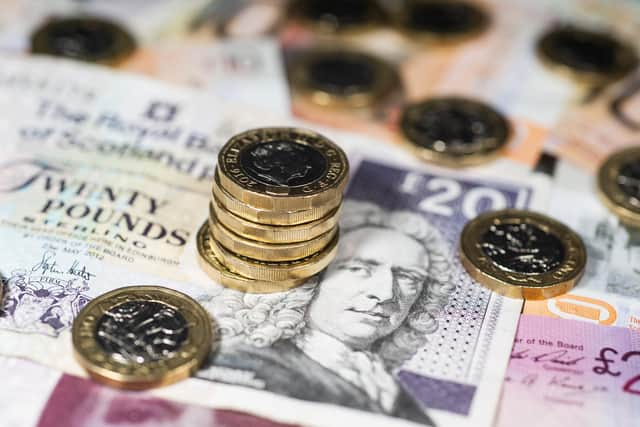Smart Money: Do I need to pay tax on cashback from my current accounts - Jenny Ross
Answer: It’s great that you’re taking advantage of these current account perks but you’re right to consider the possible tax implications, as cashback and reward payments aren’t treated in the same way as savings interest, which can cause some confusion.
Let’s start with the rules on savings interest. Thanks to the personal savings allowance, the vast majority of savers don’t have to pay any tax on the interest they earn. You can earn up to £1,000 a year tax-free if you’re a basic-rate taxpayer, or £500 a year if you’re a higher-rate taxpayer (there’s no allowance for additional-rate taxpayers). This covers interest from bank and building society accounts, savings and credit union accounts, corporate bonds and government bonds.
Advertisement
Hide AdAdvertisement
Hide AdBut the £5 you get each month from your Halifax Reward account isn’t classed as savings income. This means it isn’t covered by the personal savings allowance and so is taxable. Halifax automatically deducts basic-rate tax of 20 per cent before making these reward payments (so the gross monthly reward is £6.25).


If your income is below £12,570 (in other words, you don’t pay income tax), then you’re able to claim this £1.25 a month back from HMRC. Conversely, if you’re a higher-rate or additional-rate taxpayer, you may need to pay extra tax on your reward payment. If you already file a tax return, you can record the reward payments here. Otherwise, you can contact HMRC directly for advice.
As for the Santander 123 account, the cashback it offers on certain bills (capped at £5 a month for each of its bill categories) is treated as a reduction in your initial bill and so is not taxable. The same goes for the cashback offered by both Halifax and Santander when you shop with selected retailers.
The interest Santander pays on its 123 account (one per cent on balances up to £20,000) is covered by your personal savings allowance. The maximum you can earn is £200 a year, which is well within the tax-free limits for both basic and higher-rate taxpayers.
Other readers who like the sound of the benefits on offer from these accounts should be aware that now is a particularly good time to switch. Halifax is paying £150 to entice new customers (until 5 September), while Santander is offering £175.
These are excellent returns for what is a very straightforward process: switching takes just seven working days and the new provider takes care of transferring your balance and regular payments.
As with any switching offer, there are certain criteria you’ll need to meet. You’ll need to use the current account switching service, which involves closing your old account. With Halifax, you’ll need to carry over at least two active direct debits as part of the switch, while Santander requires you to set up at least two active direct debits and pay in £1,000 within 60 days of switching.
Bear in mind that the Santander 123 account has a monthly fee of £4 and requires you to pay in at least £500 a month. Halifax charges £3 a month for its Reward account, but this is waived if you pay in at least £1,500 a month.
Advertisement
Hide AdAdvertisement
Hide AdOther eye-catching switching offers are available from First Direct (£175) and Nationwide (£100), both of which are Which? Recommended Providers for current accounts.
And just to be clear – these switching incentives aren’t taxable.
Jenny Ross is editor of Which? Money
Comments
Want to join the conversation? Please or to comment on this article.
